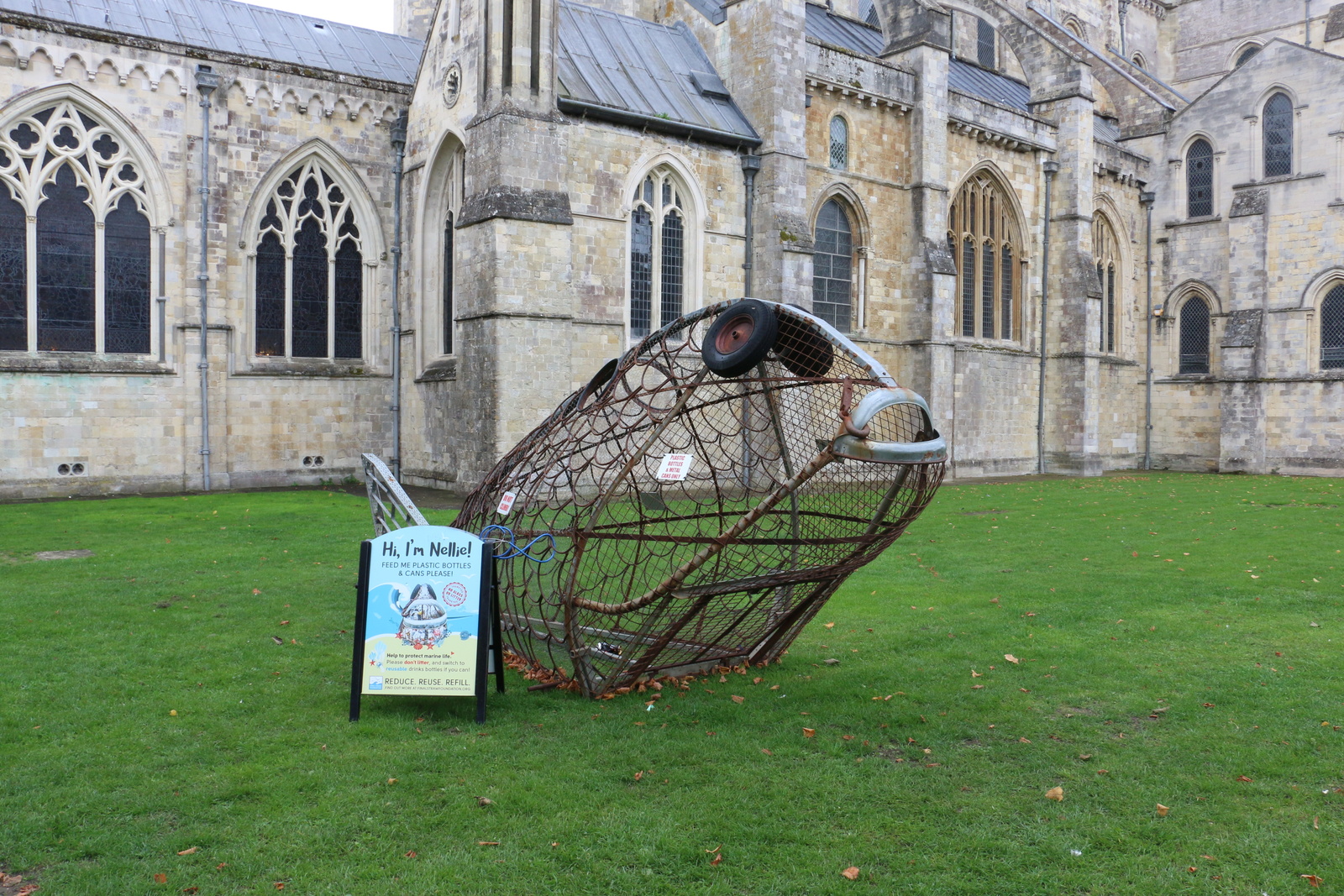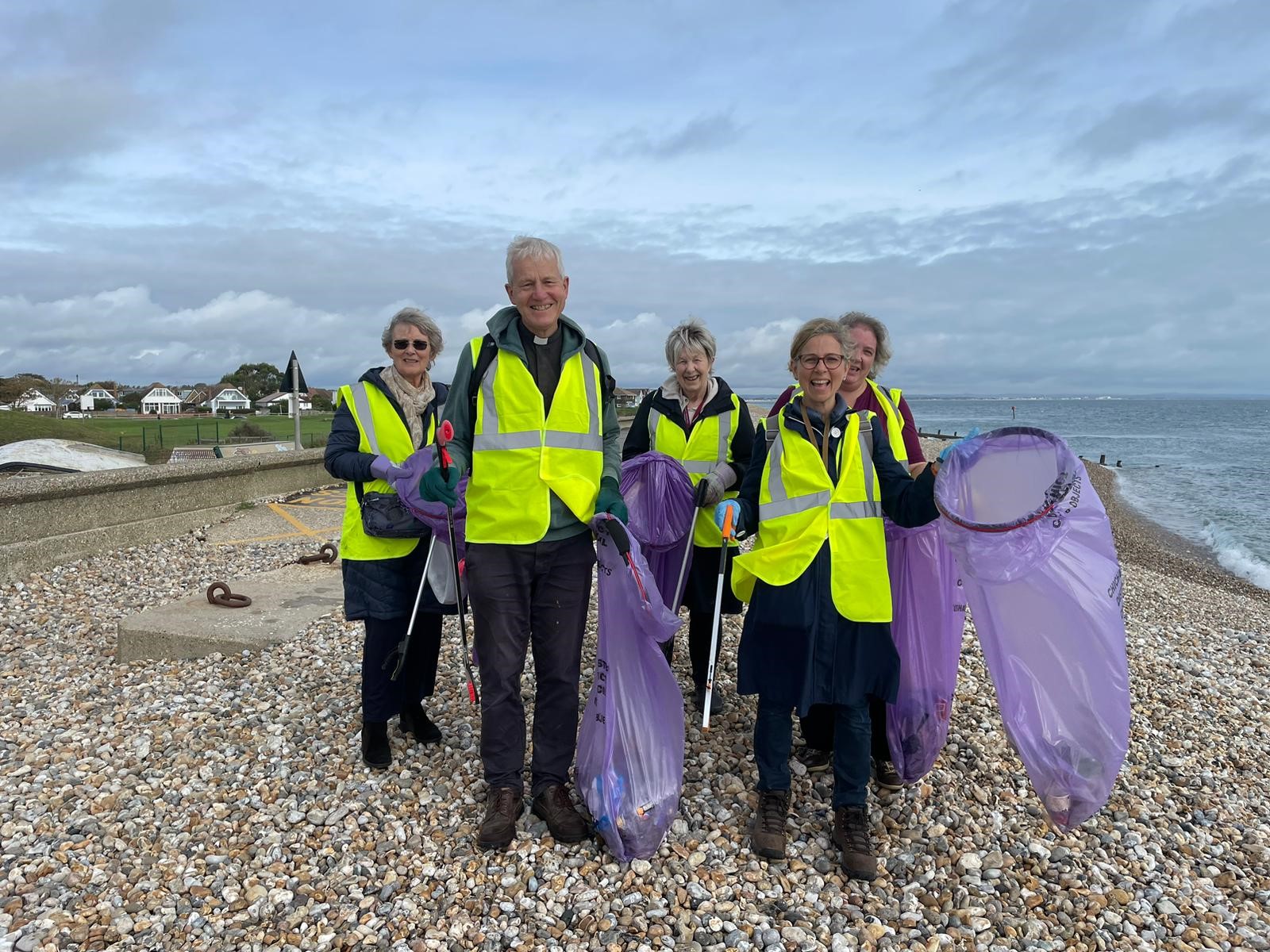We believe it is our Christian duty to care for God's world.
Read on below to find out more about our plans to grow our care for the environment, make positive changes to the Cathedral's estate and encourage greater discussion and action in response to the climate crisis.
Protecting our natural world
The Cathedral is part of the Eco Church scheme run by A Rocha UK, the Christian environmental charity committed to equipping churches and their congregations to care for the environment. Chichester Cathedral is currently en-route to achieve the Gold Eco Church Award, bypassing Silver and having acquired the Bronze Award in 2018.
The scheme takes into consideration five key areas of church life: worship and teaching; management of church buildings; management of church land; community and global engagement; lifestyle.
Here are some, but not all, of the day-to-day changes we have made:
- The Cathedral is run on a green energy tariff;
- We have embarked on a new lighting scheme that will reduce our carbon footprint by 90%;
- Operationally, heat emitters throughout Cathedral buildings are routinely replaced with low energy alternatives; thermal insulation, draught excluders and thermostatic radiator valves are installed; we also constantly reviewing where we might be able to install secondary glazing;
- Orders of Service and printed materials, including leaflets, are printed on recycled paper – a sustainable product made without harsh bleach and harmful optical brightening agents. Where possible we also use vegetable inks too;
- We work closely with partners in our local area, including Chichester District Council, to manage our waste and recycling;
- We also programme activities and events to contribute to discussion around the climate emergency, including Nellie the Final Fat Fish – a large metal sculpture which the public filled with used plastic bottles and aluminium cans, illustrating the huge volume of waste we create;
- Those travelling to the Cathedral are encouraged to travel by public transport, by foot (including pilgrimages) and by bike. We form part of the Cathedral Cycle Route, linking all 42 Church of England cathedrals in an initiative to promote greener travel and mental and physical wellbeing.

Nellie the Final Fat Fish, in collaboration with the Final Straw Foundation, a large metal sculpture on the Cathedral Green in October 2022.
Aiming for Net Zero by 2030
A ‘Routemap’ to Net Zero by 2030 was approved by the General Synod of the Church of England in July 2021. It sets out steps or ‘milestones’ each year for the national church, dioceses, cathedrals, local church, schools, theological teaching institutions to help them on their journey to achieve this target.
On top of working to improve our Eco Church rating, we have ambitions to publish a new Carbon Management Plan– initially focussing upon the Cathedral and main support buildings, including the Cloisters and Cathedral Offices. This will be underpinned by a Sustainable Estates Plan.
The Cathedral receives no automatic statutory funding, and relies wholly on donations and self-generated income for its restoration and project needs. Objectives and actions from the Carbon Management Plan will take additional raising of funds into consideration, creating a realistic timeline.

Cathedral staff, volunteers and congregation marked the Feast of St Wilfrid on 12th October 2023 by taking part in a beach clean, supporting our commitment to being an Eco Church and linking to the Cathedral’s historic origins in Selsey.
Being transparent with our investments
The Cathedral investments are overseen by CCLA – a fund manager with a specific focus upon charities, religious organisations and the public sector. One of the reasons CCLA were selected by the Cathedral’s Chapter was for their positioning on climate change and social justice within their investment strategy. In addition, we are fully compliant with Church of England Policy (Ethical Investment Advisory Group).
We also continue to advocate for change with those we work with, including the Diocese to Chichester, promoting responsible ethical and environmental behaviour.
We believe the best way we can respond to the climate crisis is together, and welcome any questions, thoughts or ideas you may have.